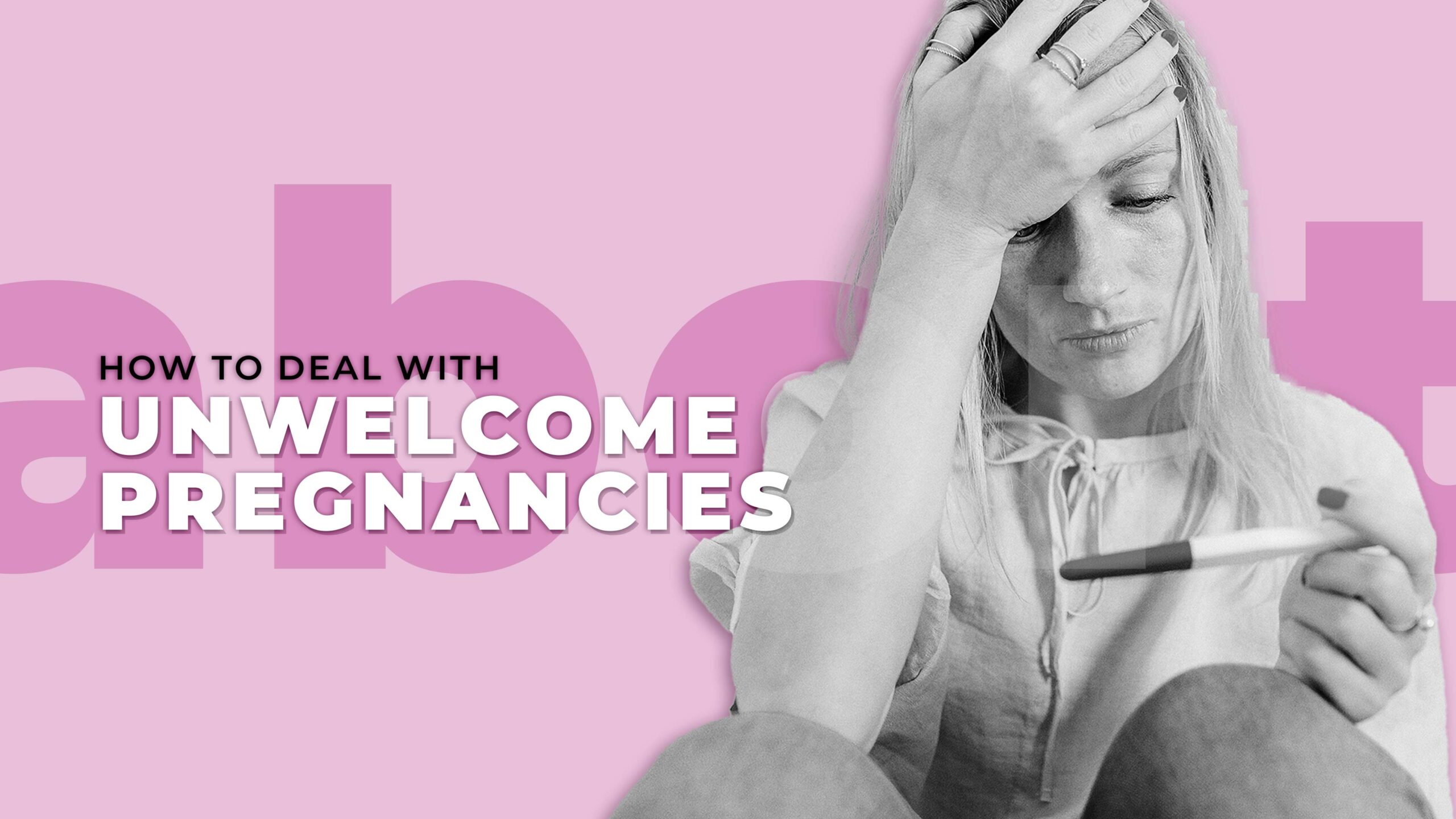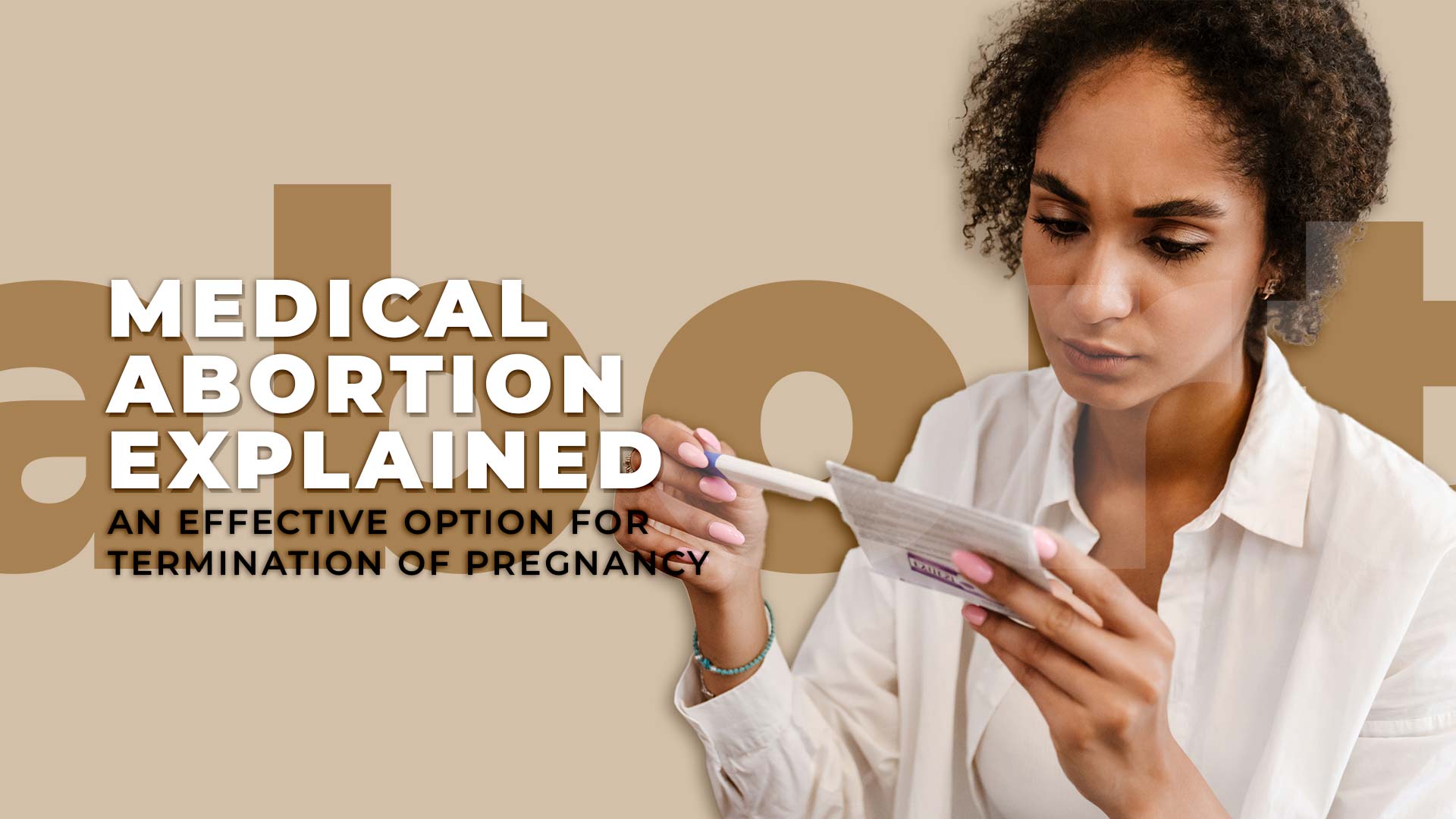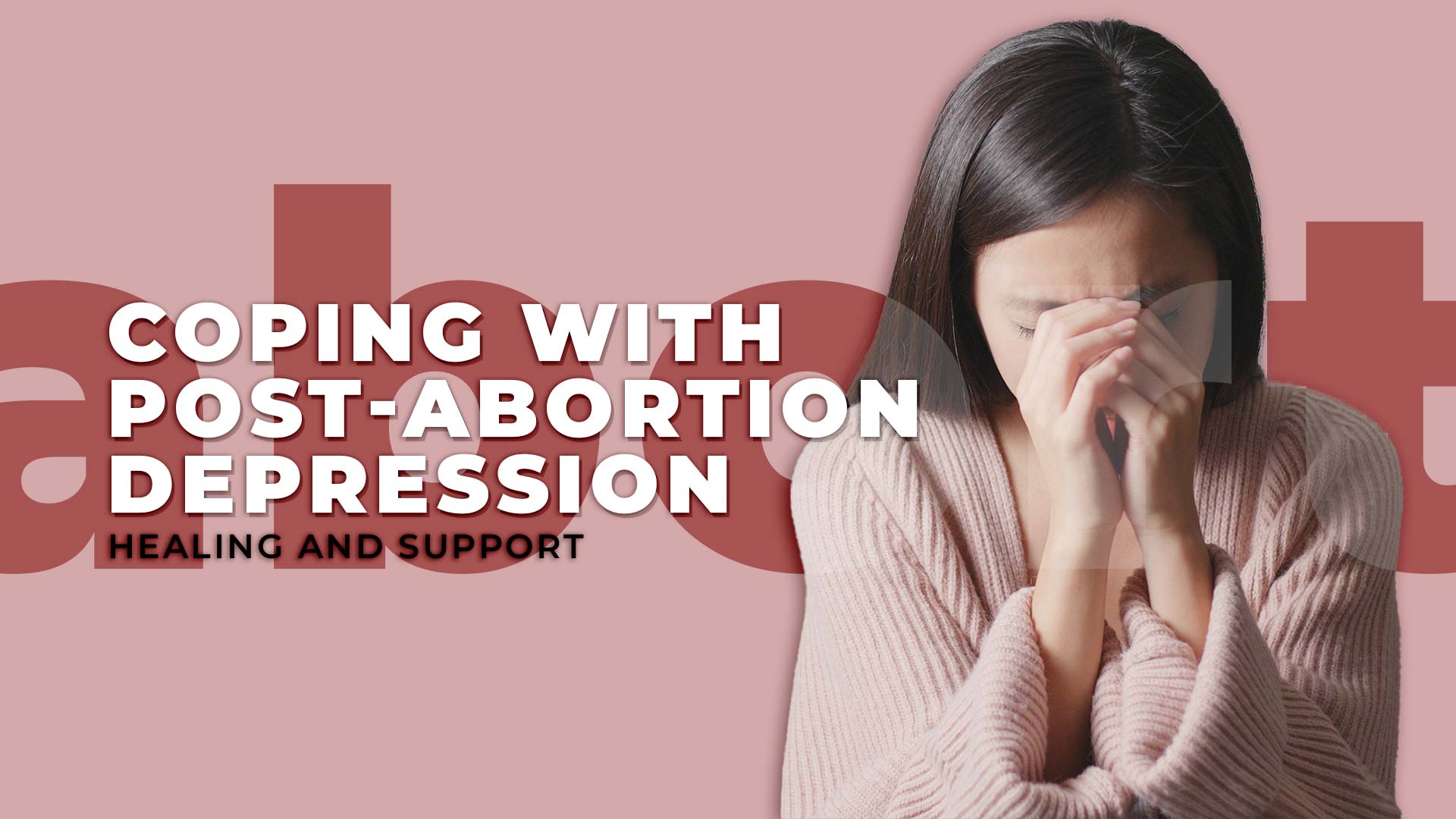You’ve just received a positive pregnancy test result, and you’re feeling overwhelmed with a range of emotions. What should you do next?
It’s common for women to feel uncertain about how to handle an unplanned pregnancy, especially since half of all pregnancies are unexpected. According to the World Health Organization (WHO), approximately 40% of pregnancies worldwide were unintended in 2012.[1] It’s important to allow yourself time to process and accept the situation before making any decisions. Take the time to consider your options and decide what to do next.
Unplanned pregnancies can significantly impact a person’s life, as they may involve making difficult decisions about whether to continue the pregnancy, end the pregnancy through abortion, or carry the pregnancy to term and raise the child. Individuals facing an unplanned pregnancy should consider all their options and seek support from trusted friends, family members, or medical professionals.
Effects of unintended pregnancy
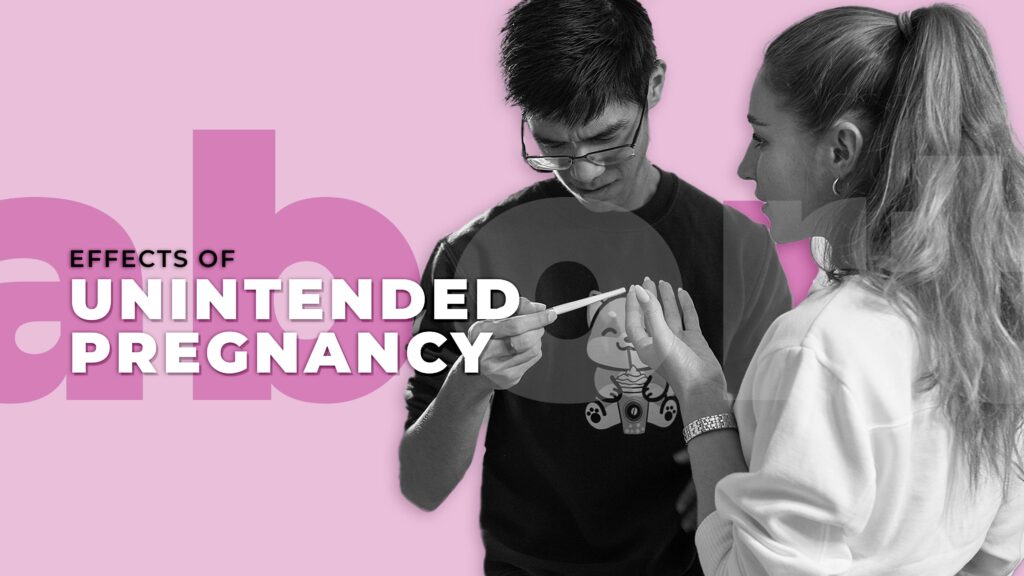
Unintended pregnancies can have several physical[3], emotional, and social effects on individuals and their families.
Physical effects:
- Pregnancy and childbirth can have physical risks and complications, including an increased risk of preterm birth, low birth weight, and maternal morbidity and mortality.
- Some individuals may experience physical symptoms of pregnancy, such as morning sickness, fatigue, and weight gain, which can be challenging to manage.
Emotional effects:
- Unintended pregnancies can be a source of stress, anxiety, and depression for individuals, as they may have to make difficult decisions about their future.
- Individuals may also feel a sense of loss or grief if they are not ready to become a parent or have to end a pregnancy through abortion.
Social effects:
- Unintended pregnancies can have social consequences, disrupting education or career plans, straining relationships with partners or family members, and affecting financial stability.
- Individuals may also face social stigma or discrimination due to their unintended pregnancy, mainly if they are young or single.
It is essential for individuals facing unintended pregnancies to seek support from trusted sources, such as friends, family members, healthcare providers, or mental health professionals, to help them navigate the challenges and make informed decisions about their future.
Causes of unwanted pregnancy
Several factors can contribute to an unwanted pregnancy[4]. These include:
- Lack of contraceptive use: Not using any form of contraception or misusing a method is one of the most common reasons for unintended pregnancy.
- Contraceptive failure: Sometimes, even when contraception is used correctly, it can fail for various reasons. For example, condoms can break or slip off, and hormonal methods can fail due to missed doses or interactions with certain medications.
- Incorrect timing of contraceptive use: Some methods of contraception, such as the withdrawal method, require precise timing to be effective. If they are not used correctly, there is a risk of unintended pregnancy.
- Medical conditions: Some medical conditions, such as polycystic ovary syndrome (PCOS), can affect fertility and increase the risk of unintended pregnancy.
- Sexual assault: Unwanted pregnancies can also occur due to sexual assault, where the individual did not consent to sexual activity or could not give consent due to incapacitation.
Use effective contraception and be aware of the potential risks and factors contributing to unintended pregnancy. If you are concerned about the risk of unintended pregnancy, you should speak with a healthcare provider or a family planning clinic for guidance and advice.
How to prevent unwanted pregnancy and abortion?
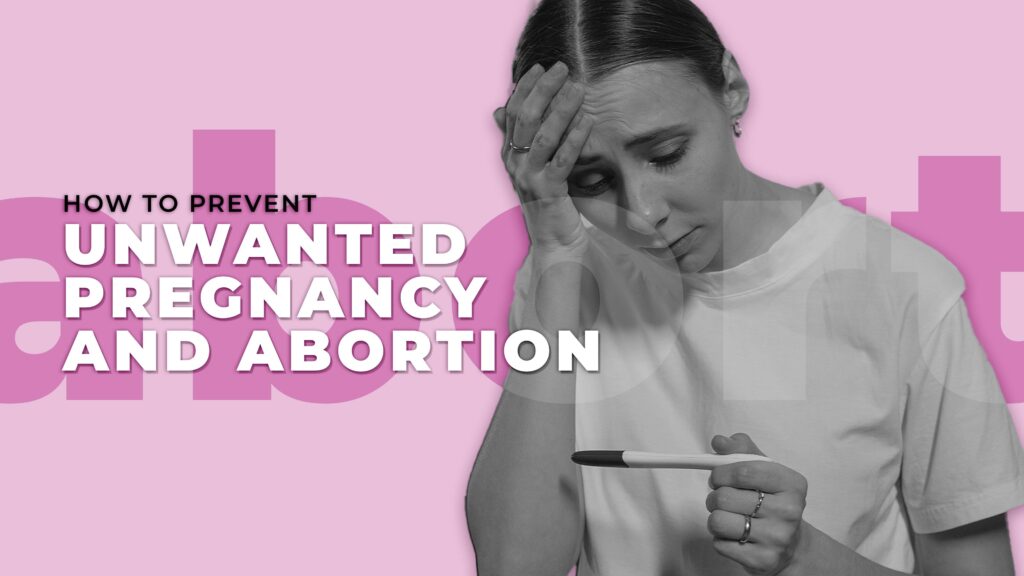
There are several strategies that individuals can use to prevent unintended pregnancies and reduce the need for abortion[5]. These include:
- Use contraception: Using reliable contraception can help prevent unintended pregnancies. There are many different types of contraception available, including barrier methods (e.g., condoms), hormonal methods (e.g., birth control pills), and long-acting reversible contraceptives (e.g., IUDs). Choosing a way that is right for you and using it consistently and correctly is essential.
- Practice safe sex: Using condoms and other barrier methods can help reduce the risk of sexually transmitted infections (STIs) and prevent unintended pregnancies. It is essential to use condoms every time you have sex and to get tested regularly for STIs.
- Communicate with your partner: It is essential to have open and honest conversations about your reproductive health, including your contraceptive needs and preferences.
- Seek out education and resources: Many resources are available to help individuals make informed decisions about their reproductive health. These include healthcare providers, family planning clinics, and online resources.
- Beware during perimenopause: Some women are unaware that they might become pregnant. It’s still possible for you to become pregnant, even though you don’t anticipate it, if you’ve previously had infertility, don’t have regular periods, or are in perimenopause. It is fair to presume that you can have intercourse without using contraception and not become pregnant once you have reached menopause (i.e., you are no longer bleeding, and it has been a whole year since you last had a period). However, you’ll still need to take precautions against sexually transmitted illnesses.
Consider all your options: If you experience an unintended pregnancy, it is essential to consider all your options, including continuing the pregnancy and raising the child, ending the pregnancy through abortion, or considering adoption. It is necessary to make the right decision and seek support from trusted sources as you navigate this process.
Options To Consider
If you are facing an unplanned pregnancy, you have three options to consider:
- Becoming a parent: Assuming a healthy pregnancy, you can carry it to term and raise the child with the help of a medical professional.
- Adoption: This option allows you to place your baby with a family who will provide care for the child. The process involves legal procedures that can be navigated with the help of a reputable agency.
- Abortion: This can be a complicated legal option, but it is still available in various regions of any country. If you are considering this option, you can use an online finder to locate abortion centers in your state or nearby states and get up-to-date information on its legality in each state.
What to do if you get pregnant by mistake?
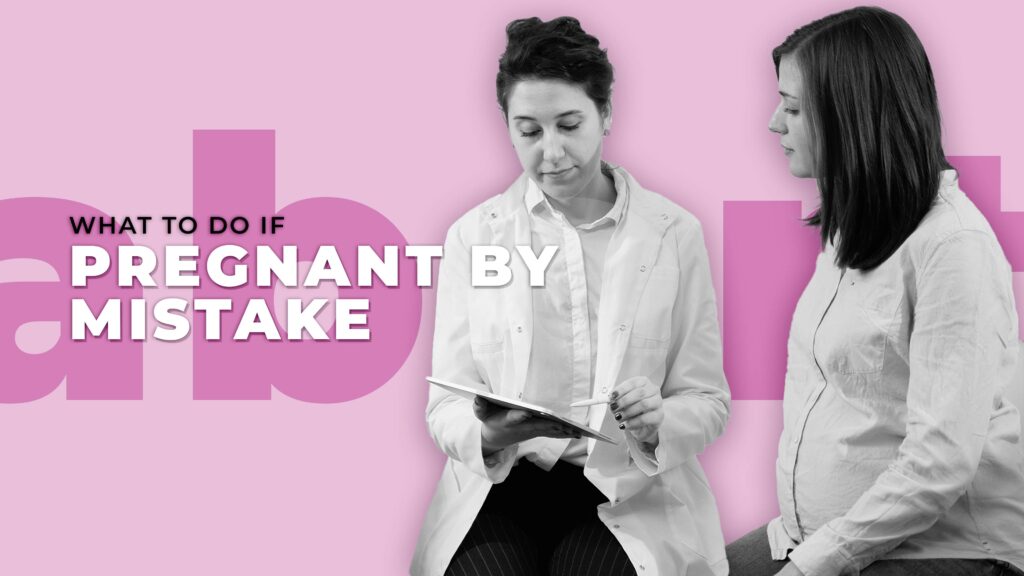
If you find out that you are pregnant unexpectedly, it can be a confusing and overwhelming experience. It is important to remember that you have options and the right to make decisions about your reproductive health. Here are some steps you can take:
- Seek medical attention: If you are pregnant, you must see a healthcare provider as soon as possible to confirm the pregnancy and discuss your options.
- Consider your options: You have several options for an unintended pregnancy, including continuing and raising the child, ending the pregnancy through abortion, or considering adoption. It is essential to take the time to consider what is best for you and to seek out information and support from trusted sources.
- Talk to someone you trust: It can be helpful to talk to a trusted friend, family member, or mental health professional about your feelings and concerns.
- Seek out resources: Many resources are available to help individuals facing unintended pregnancies, including healthcare providers, family planning clinics, and online resources. These can provide you with information and support as you make decisions about your future.
Remember that you are not alone and that people and resources are available to help you through this process. It is essential to take care of yourself and make decisions that are right for you.
Final word
Unplanned Pregnancies are caused by various factors, including failure to use contraception, contraceptive failure, or sexual assault. They can have significant physical, emotional, and social effects on individuals and their families. Individuals may face social stigma or discrimination due to their unplanned pregnancies, mainly if they are young or single.
There are several strategies that individuals can use to prevent unintended pregnancies, including using contraception, practicing safe sex, communicating with their partner, seeking out education and resources, and considering all their options. It is essential for individuals facing unplanned pregnancies to consider all their options, including continuing the pregnancy and raising the child, ending the pregnancy through abortion, or considering adoption, and to seek support from trusted sources as they navigate this process.
References
- New Study finds that 40% of pregnancies worldwide are unintended (2022) Guttmacher Institute. https://www.guttmacher.org/news-release/2014/new-study-finds-40-pregnancies-worldwide-are-unintended
- Finer LB, Zolna MR. Declines in Unintended Pregnancy in the United States, 2008-2011. N Engl J Med. 2016 Mar 3;374(9):843-52. doi: 10.1056/NEJMsa1506575. PMID: 26962904; PMCID: PMC4861155. https://pubmed.ncbi.nlm.nih.gov/26962904/
- Institute of Medicine (US) Committee on Unintended Pregnancy; Brown SS, Eisenberg L, editors. The Best Intentions: Unintended Pregnancy and the Well-Being of Children and Families. Washington (DC): National Academies Press (US); 1995. 3, Consequences of Unintended Pregnancy. https://www.ncbi.nlm.nih.gov/books/NBK232137/
- Klima, C. (1998) “Unintended pregnancy consequences and solutions for a worldwide problem,” Journal of Nurse-Midwifery, 43(6), pp. 483–491. Available at: https://doi.org/10.1016/s0091-2182(98)00063-9
- Kallner, H.K. and Danielsson, K.G. (2016) “Prevention of unintended pregnancy and use of contraception—important factors for preconception care,” Upsala Journal of Medical Sciences, 121(4), pp. 252–255. Available at: https://doi.org/10.1080/03009734.2016.1208310.

